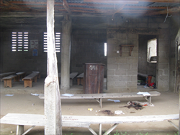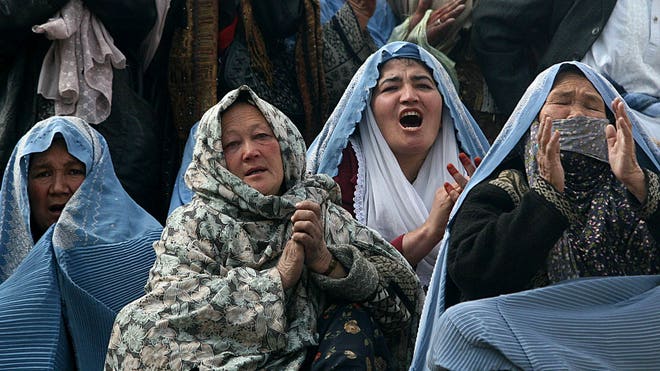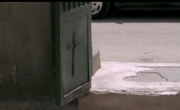By Jeremy Reynalds
Senior Correspondent for ASSIST News Service
JUBA, SOUTH SUDAN (ANS) -- Sudan has stepped up its arrests and deportations of Christians, with interrogation including threats to bury them alive, sources said.
 |
Photo: A Sudan Pentecostal Church building the government bulldozed earlier this year.(Morning Star News photo)
|
According to a story by Morning Star News, besides the deportation to South Sudan of the secretary general of the Sudan Catholic Bishops' Conference on April 12, other Christians have been targeted in the past several weeks for arrest, interrogation and/or deportation.
"They told me to reveal to them 12 names of Christians who are active in evangelism in Sudan, but I told them I have no idea," said the elder, whose name is withheld for security reasons.
Morning Star News said the right to manifest one's faith is a key provision of the International Covenant on Civil and Political Rights, to which Sudan is a signatory.
NISS officials have required staff members of a university campus-based ministry to report to them weekly following t heir arrest on Feb. 23. Initially they were held and interrogated for a week, one said.
"The security officers verbally threatened to bury us alive if we did not give information on who was supporting these Christian activities," the Christian worker said.
After the Christian workers were released, Morning Star News said, for two weeks security officials ordered them to report daily to NISS offices for interrogation about links with Christian organizations, said the worker, whose organizational name is withheld for security reasons.
NISS officials confiscated the organization's equipment, vehicle and documents. They also went to the home of organization members and took academic papers, laptops, digital cameras, mobile phones and iPads, among other personal belongings, he said.
Authorities deported three of the group's workers to South Sudan in March after monitoring their movements and telephone calls, another member told Morning Star News.
"They gave me only 72 hours to leave the country," the C hristian worker said. "They came to my house while I was away and took five laptops of my sisters, as well as my documents, identity cards, school documents and mobile phone. I thank God that He has been with me during the interrogation with the Security."
Some Christians from South Sudan have been given only 24 hours to leave Sudan, Morning Star News reported sources said.
On April 29, various church leaders in Omdurman, on the Nile River opposite Khartoum, organized a meeting to pray over the crisis facing congregations in Sudan.
Morning Star News said harassment, arrests and persecution of Christians have intensified since the secession of South Sudan in July 2011. Thatwas when President Omar al-Bashir vowed to adopt a stricter version of sharia (Islamic law) and recognize only Islamic culture and the Arabic language.
Authorities deported three of the group's workers to South Sudan in March after monitoring their movements and telephone calls, another member told Morning Star News.
"They gave me only 72 hours to leave the country," the C hristian worker said. "They came to my house while I was away and took five laptops of my sisters, as well as my documents, identity cards, school documents and mobile phone. I thank God that He has been with me during the interrogation with the Security."
Some Christians from South Sudan have been given only 24 hours to leave Sudan, Morning Star News reported sources said.
On April 29, various church leaders in Omdurman, on the Nile River opposite Khartoum, organized a meeting to pray over the crisis facing congregations in Sudan.
Morning Star News said harassment, arrests and persecution of Christians have intensified since the secession of South Sudan in July 2011. Thatwas when President Omar al-Bashir vowed to adopt a stricter version of sharia (Islamic law) and recognize only Islamic culture and the Arabic language.
South Sudanese lost citizenship in Sudan and were ordered to leave by March 1, 2012. However, an estimated 500,000 of them were reportedly stranded in the north due to job loss, pover ty, transportation limitations and ethnic and tribal conflict in South Sudan.
Morning Star News said Sudan and South Sudan signed an agreement on Sept. 27 2012 to hold negotiations on citizenship rights for South Sudanese in Sudan and northerners living in South Sudan. However, there has been no progress, according to the U.S. Commission on International Religious Freedom (USCIRF)'s annual report, issued this month.
Morning Star News said Sudan and South Sudan signed an agreement on Sept. 27 2012 to hold negotiations on citizenship rights for South Sudanese in Sudan and northerners living in South Sudan. However, there has been no progress, according to the U.S. Commission on International Religious Freedom (USCIRF)'s annual report, issued this month.
South Sudanese Christians in Sudan have faced increased hostilities due to their ethnic origins - though thousands have little or no ties to South Sudan - as well as their faith.
Morning Star News said South Sudan's secession has served as a pretext for Bashir's regime to bulldoze church buildings once owned by South Sudanese and to deport Christians based on their ethnicity, sources said.
Morning Star News said South Sudan's secession has served as a pretext for Bashir's regime to bulldoze church buildings once owned by South Sudanese and to deport Christians based on their ethnicity, sources said.
Morning Star News said the government's determination to rid the country of Christianity was evident on April 12, when security forces deported the secretary-general of the Sudan Catholic Bishops' C onference, Santino Morokomomo Maurino, and two colleagues to South Sudan.
Morning Star News said Sudan Catholic Radio Network reported that NISS officials detained him in Khartoum and gave him three days to leave. Michael Fleury of France and an Egyptian identified only as Brother Hossam, both members of the De La Salle Christian Brothers in Khartoum, were also deported.
In a report issued this month, Christian Solidarity Worldwide noted an increase in arrests, detentions and deportations of Christians since Dec.2012. The organization also reported that systematic targeting of Nuba and other ethnic groups suggests the resurgence of an official policy of "Islamization and Arabization."
Morning Star News said due to its treatment of Christians and other human rights violations, Sudan has been designated a Country of Particular Concern by the U.S. State Department since 1999, and USCIRF this month recommended that the country remain on the list this year.
For more information go to www.morningstarnews.org
Morning Star News said Sudan Catholic Radio Network reported that NISS officials detained him in Khartoum and gave him three days to leave. Michael Fleury of France and an Egyptian identified only as Brother Hossam, both members of the De La Salle Christian Brothers in Khartoum, were also deported.
In a report issued this month, Christian Solidarity Worldwide noted an increase in arrests, detentions and deportations of Christians since Dec.2012. The organization also reported that systematic targeting of Nuba and other ethnic groups suggests the resurgence of an official policy of "Islamization and Arabization."
Morning Star News said due to its treatment of Christians and other human rights violations, Sudan has been designated a Country of Particular Concern by the U.S. State Department since 1999, and USCIRF this month recommended that the country remain on the list this year.
For more information go to www.morningstarnews.org










